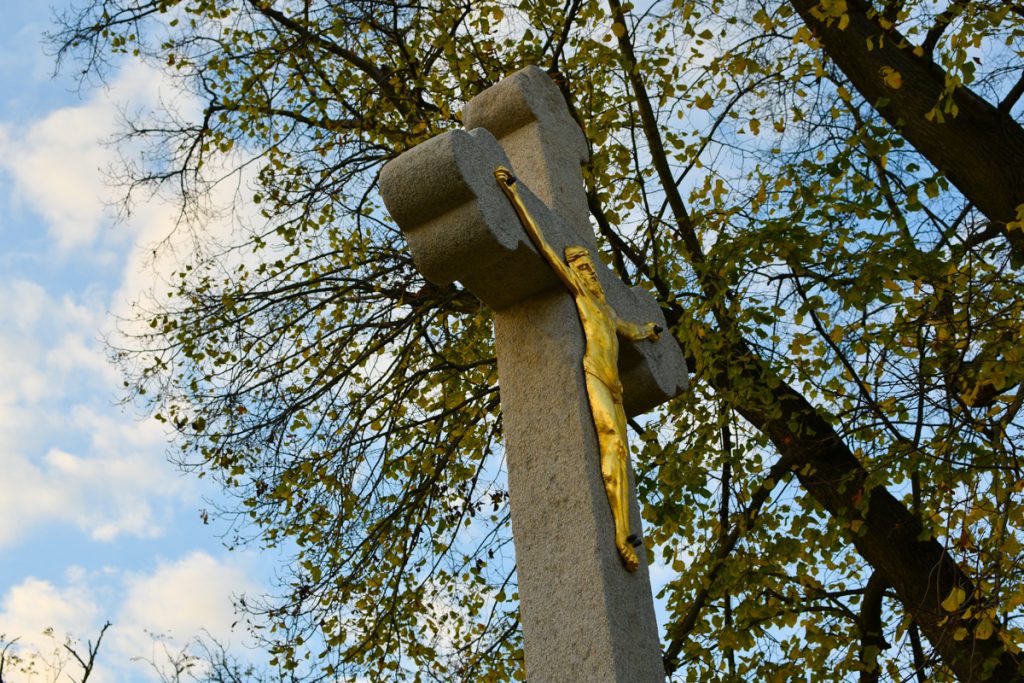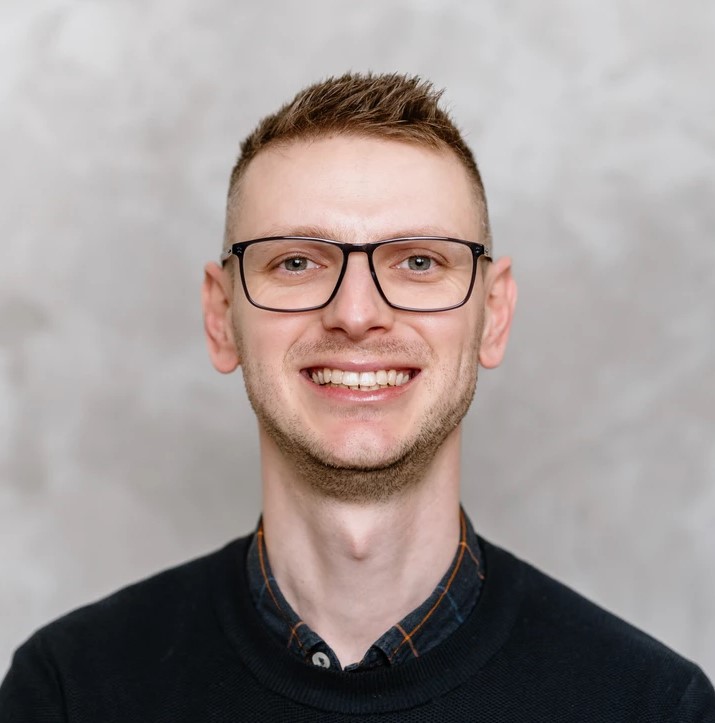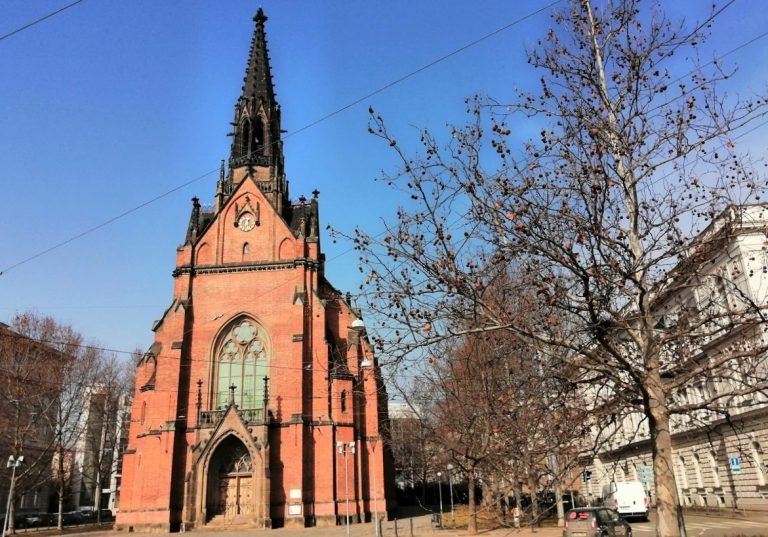Jakub Peša recalls watching his grandmother pray in his childhood. This was the height of religious speech between the two – no speech at all. She would occasionally visit a church, but it certainly wasn’t a firm facet of her Sunday routine. His parents on the other hand, Peša suggests, didn’t seem to believe in the Christian God at all, despite being baptised.
“They would say there is something above us,” Peša said. “But they did not name it as God.”
This lack of structured religion in Peša’s youth doesn’t arouse particular interest until one considers his current vocation. The Associate Pastor for Education and Administration at City House, a church in Brno, was born and raised in Letovice, a small town in the Blansko region of South Moravia. In recent years the Czech Republic has developed a reputation as Central Europe’s most atheistic nation. Peša disagrees with this reputation.
“I wouldn’t say [Czechs] are atheist in that we don’t believe in any god…. Czechs believe basically anything, I would say … but they don’t believe in the Christian God,” he said.
According to the 2021 National Census, a little over five million Czech citizens declared they had no “religious beliefs.” So despite Peša’s declaration, there is evidence that suggests the country’s secular reputation is not completely unfounded, especially in comparison to its neighbors. The country’s eastern neighbor Slovakia, which formed the other half of Czechoslovakia until its dissolution at the end of 1992, is majority Catholic.

Despite their history as one unified nation, the two have vastly different religious landscapes. Historian Jiří Friedl says to understand this one has to look back as far as the 15th century.
Friedl cites religious reformer Jan Hus as one of the initial figures that shaped Czech society’s religious identity. Hus, a precursor of the Protestant movement of the 16th century, challenged the authority of the pope and the Catholic Church. In his teachings he was outspoken about immorality and corruption within the church.
In many ways Hus was the catalyst of irreligion in the Czech Republic, though that was not his goal. He sought a reform of the church, not its abandonment. But according to Friedl, we cannot stop at Hus when explaining the rise of secularism.
He says the communist regime capitalized on Czechs’ growing disdain for the church in a way that was not possible in neighbouring lands.
“[The Polish communists] didn’t dare to take any severe steps against the Catholic church, because they realized that complete destruction of the Catholic Church in Poland, as happened in Czechoslovakia, and in the Czech lands, would have caused big problems for the Polish communist regime,” Friedl said.
The authority of the church was waning in the Czech lands long before the regime, thus it was easier to facilitate its eradication. Under the regime over 200 monasteries were closed, thousands of monks were wrongfully imprisoned, religious artifacts were destroyed and members of religious communities were constantly targeted.
There was a systematic destruction of the church and religion. In order for communism to thrive there was simply no room for dissent. Though there were several factors leading to the Czech Republic’s irreligion, it was communism that was the nail in the casket.
Friedl said the regime forced Czechs to neglect the spiritual side of life in favor of the material side.
In his opinion the “nihilism” he and others observe in Czech society is a direct consequence of the actions of the regime. He points to the decline in funeral rites as evidence. “Czechs do not build special graves as they did 200 years ago,” he said.
“I don’t think that nihilism is good for us. I think this is a sign Czech society is not in a good state, it is ill,” Freidl said. “How to repair the spirit of Czech society in this field – I don’t know. This is rather work for psychologists, priests and social workers.”
Peša and the administration at City House hope to aid in the repair of spirituality.
“We speak about ourselves as an open and easy to understand Church,” Peša said. “We want to be accessible for people who don’t know the church.”
This goal manifests in the terminology they use. City House sees themself as pre-Christian rather than post-Christian, which Peša explained means they don’t frequently use Christian language.
“When we do, we explain everything,” he said. “One of the most important things for us is to communicate in a way that people would understand, and that I think is one of the things that is bringing people in.”

Currently City House has around 250 members which Peša says makes it a mega-church in the context of the Czech Republic. He says they don’t practice street evangelism, so people tend to discover them through social media.
“I think [street evangelism] doesn’t work, because that just feeds the assumption that we are weird and a cult,” Peša said. “So we would never go to the streets to make evangelism.”
City House is far from the only active church in Brno. Local churches such as City House, Církev Bratrská, Redeemed Church of the Christian God Brno International Church and more are all building spaces where individuals can congregate and worship amongst each other.
Many of them also offer translation of sermons to appeal to a larger demographic. Benjamin Carlson, an international student completing a study abroad program at Masaryk University has taken advantage of this.
Carlson was vaguely aware of the country’s reputation and was prepared to hear little to no conversations about faith and God. However, he said he was “ pleasantly surprised” by how many different churches Brno had to offer.
Carlson was able to find a church to attend during his stay very early on.
“I really like the church community at [Brno International Christian Fellowship]. It’s just great.” Carlson said. “And there’s a couple other international students that go as well, which is nice.
Benjamin said studying in the Czech Republic has given him new perspectives.
“Even in a maybe really atheistic country like the Czech Republic … you can probably find a church, and you can probably find people who love Jesus, and I think that’s amazing.”






